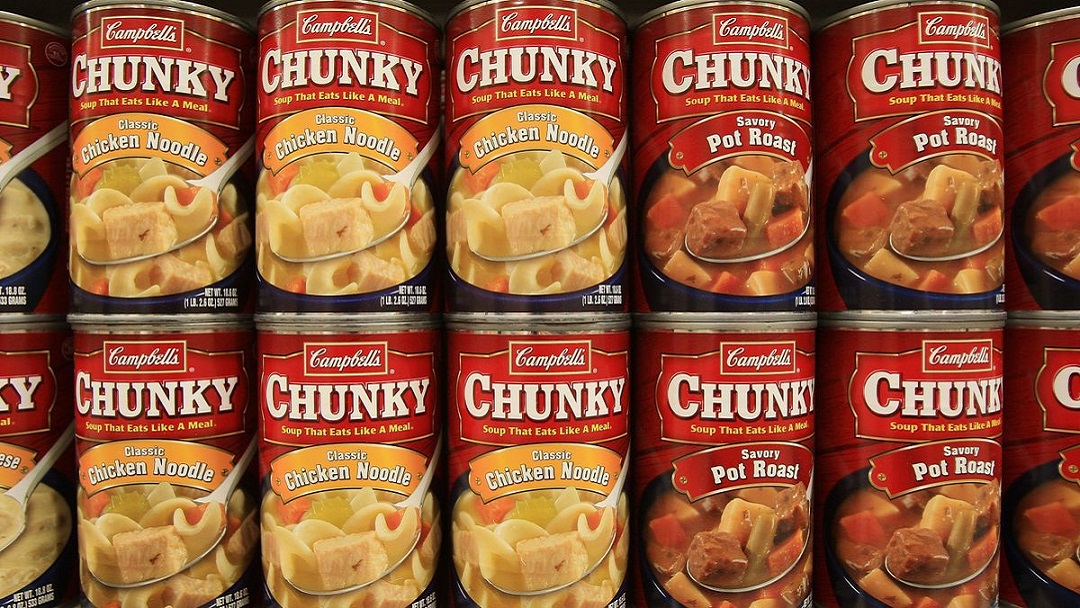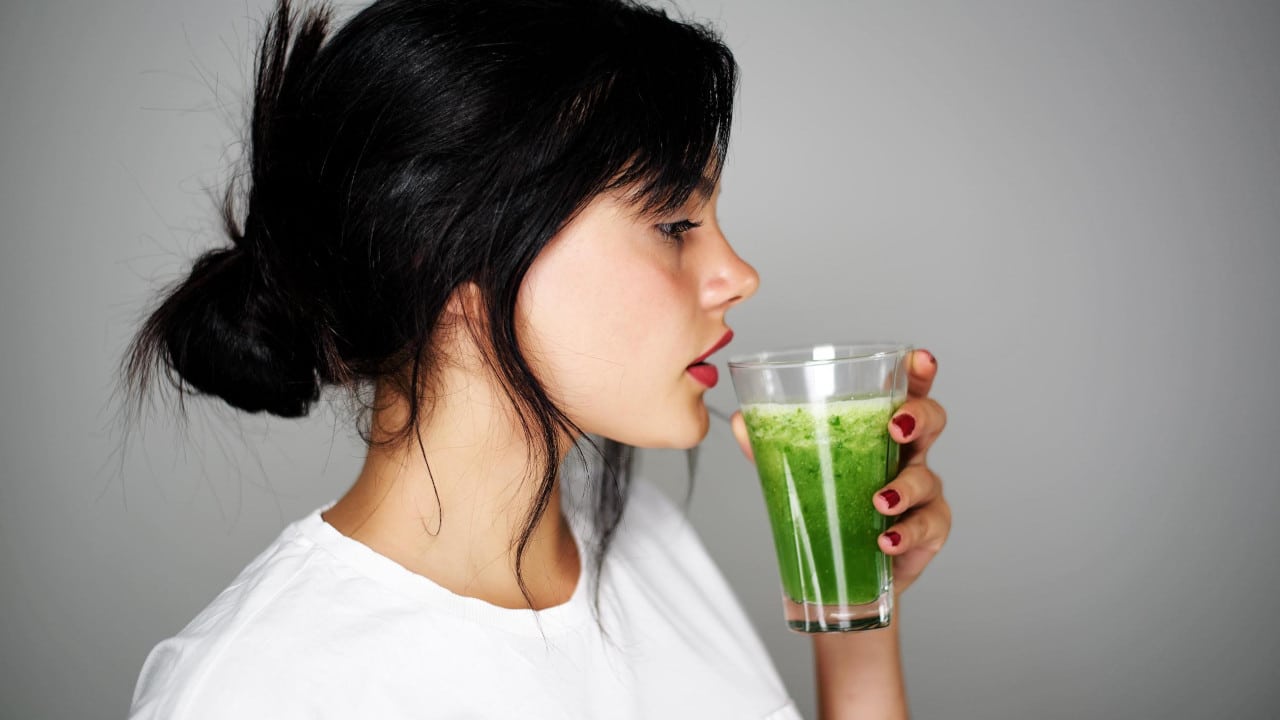People are big on eating healthy these days. Supermarket aisles teem with products screaming "low fat!" and "sugar-free!" and "zero calories!" while fast food chains serve up salads and apple slices and friggin' oatmeal.
But just because something claims to be beneficial doesn't necessarily mean it isn't secretly plotting to kill you in your sleep. Take, for instance, the six items below. Wait'll you see the dirt we have on yogurt and smoothies…
Tea-Like Beverages

The key phrase here is "tea-like." Because while these drinks say the word "tea" right on the label, drinking one to achieve the health benefits of tea is kind of like eating a Big Mac to achieve the health benefits of lettuce and tomatoes.
Sure, there's a little bit of tea in these drinks, but it's severely outweighed by the amount of sugar that's added to the beverage to make it delicious and desirable to the hordes of sweet-toothed consumers who suck it down by the gallon each day. A bottle of Snapple Iced Tea, for instance, contains 25 grams of sugar or more. That's almost as much as a can of Mountain Dew (31 grams), which, as we all know, destroys your teeth, shrinks your testicles and turns you into a mindless video game drone with no chance of ever getting laid again ever.
Crazy high sugar levels aren't the only shady things going on in these drinks, though. According to Consumer Reports, a lot of tea-like beverages deliver only a fraction of the antioxidants and other health benefits you'd get from drinking real brewed tea. So just brew some damn tea already. The British have been doing it for centuries and look at them. Oh… I see. OK, stick with the bottled crap.
Frozen Yogurt
First off, frozen yogurt is just as high in sugar as ice cream. A half-cup of ultra-hip Pinkberry's original tart actually contains more sugar (20 grams) than the same serving of Ben and Jerry's vanilla (19 grams). Which we could probably live with, if it weren't for the fact that for a long time, Pinkberry wasn't even legally classified as yogurt. When Pinkberry opened in 2006, the company was immediately greeted by skepticism over its claim of offering an "all natural" frozen yogurt product. Wary critics demanded to see Pinkberry's list of ingredients, but the company wouldn't oblige until a lawsuit in 2008 forced them to reveal what was in the yogurt.
Turns out it took 23 ingredients to form Pinkberry's product, including a lengthy rundown of corn syrup-based sugars, preservatives and hard-to-pronounce chemical additives. As University of Minnesota food science professor Dr. Gary A. Reineccius remarked to the New York Times following the suit, these far-from-natural ingredients were "there to make something smooth, sweet and tangy that would otherwise be gritty and flavorless in a frozen state."
Then the LA Times sent a sample of Pinkberry's yogurt to a lab for further analysis. The lab reported that the yogurt actually contained too few live active cultures (the stuff that makes yogurt good for you) to be legally considered yogurt. So Pinkberry had been selling a delicious chemical knockoff, and people had loved it. The company has since altered its recipe enough to call it yogurt and limited its use of additives, but who knows what all the other dozens of frozen yogurt chains across the nation are feeding people? Long story short: If it tastes amazing, looks like ice cream and is labeled "healthy," it's probably too good to be true.
Smoothies
We're talking specifically about store-bought smoothies here—the stuff you make at home with fruit and yogurt is usually all good. When you buy a smoothie from Jamba Juice or one of its many clone-like competitors, however, what you're often getting is a sugary, calorie-laden meal in liquid form.
One regular-sized serving of Jamba's signature smoothie, Strawberries Wild, contains 370 calories and 77 grams of sugar. That's almost three times as much sugar as a can of Coke. And while some supporters defend Jamba's sugar content by claiming that fruit naturally contains high amounts of sugar, consider this: one cup of strawberries, roughly the amount that goes into a Strawberries Wild, only contains 7.4 grams of sugar. So where's all the rest coming from? Mainly from the sweetened frozen yogurt and ambiguously labeled "juice blend" that make up a large portion of what you're drinking.
What does all this mean for your smoothie-consumption habits? It means if you really want to drink healthy, you should just make your own. As a rule of thumb, anytime you purchase a food item from a massive corporate franchise, you can pretty much expect it to be drained of all nutritional value and saturated with sweeteners. That's what makes it so delicious.
Rice
Specifically, white rice. It seems innocent enough, but research has shown that individuals who eat rice twice a week or more could lower their risk of diabetes by up to 16 percent by switching from white to brown rice.
That's because white rice is basically just a watered-down version of brown rice, stripped of its dark, nutrient-rich outer husk, then bleached and polished. It might look great in sushi and taste less grainy, but what's lost, unnaturally, is the redeeming health value.
What's more, white rice is a refined carbohydrate (as opposed to a whole grain like brown rice) and tends to break down in your digestive system much quicker, converting to glucose at a higher rate and releasing more sugars into your body. Over time, those sugars are what increase your risk of diabetes. Of course, it's not like you're going to develop diabetes from eating a few helpings of white rice every now and then, but if you do eat a lot of the stuff you might as well switch to brown. Unless you're one of those weirdos who likes that silly couscous.
Soup

It's mostly liquid, so it's got be easy on the waistline, right? Not really. The main reason soup tastes so good is that's it's loaded with sodium, which, it turns out, is pretty bad for you when consumed in excess. Just one serving of Campbell's Chicken Noodle—a freakin' American classic—boasts 870 milligrams of sodium, or 36 percent of your daily recommended intake.
Keep in mind, that's just one serving. Look at any standard-sized can of soup and you'll notice it actually contains two servings or more. And since you're not three years old, chances are you're going to eat the whole can, along with the entire 1,740 milligrams of sodium hidden within its rich, soupy goodness.
Is it possible to feel betrayed by a food item? If so, soup just cut me deep.
Turkey sandwiches
The turkey sandwich: go-to lunch choice of health-conscious deli patrons everywhere. It's low-fat, delicious and a decent source of protein.
Unfortunately, processed deli meat in general is also a decent source of nitrates and nitrites, compounds which are commonly added to meat as preservatives or color-enhancers, and which have been linked to an increased risk of cancer. Research is still unfolding and scientists can't say for sure just how dangerous nitrate consumption is to humans, but what they have determined is that when ingested, these compounds lead to the formation of nitrosamines. Nitrosamines are carcinogenic to humans, and have been shown to cause various forms of cancer and DNA mutations in lab animals.
And they're everywhere. Sodium nitrite is a highly common additive in cured meats, including your typical deli fare and, yes, bacon. Which, on the upside, means that bacon may be no worse than turkey. And you can feel a little less guilty about ordering that BLT with extra mayo. Score!
 |
 DMT Has Friends For Me Shirt $21.68 |
 |

